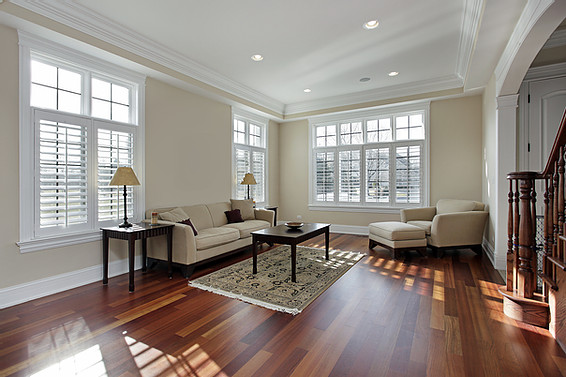When considering what type of flooring is best for your new construction or renovation project, two flooring types are likely to come up in conversation: solid hardwood and engineered hardwood. Both are exceptional options for your flooring needs, so you might wonder what the difference is between these similar flooring options.
For your convenience, here is a helpful guide.
Cost Concerns With Flooring
As far as costs are concerned, engineered flooring is less expensive than hardwood flooring. Hardwood flooring can get refinished multiple times without having to get replaced, whereas engineered hardwood has a limited number of times it can get refinished.
Both options are viable options for beautiful flooring for your home or offices, so either way, you enjoy the beauty and benefits hardwood floors in your space.
If you take steps to protect your flooring against water damages and wear and tear, you can easily extend the lifespan of your wood flooring.
In many cases, a flooring company offers financing options to help homeowners and property owners break the expense of new flooring into a more affordable payment plan that gets spread across multiple months or years. Ask the flooring company for details.
Engineered Hardwood
Best regarded for water and moisture resistance, engineered hardwood is composed of several layers. This design helps prevent water and other liquids from penetrating the plank core, causing damage such as warping, curling, and other cosmetic damages.
One of the disadvantages of engineered wood is it has a limited amount of times it can get sanded and refinished. The multilayer design that makes it great for protecting against water damage limits the number of times it can get refinished and sanded. Once the hardwood veneer layer, made of real hardwood, gets wholly sanded off, it reaches its usable lifespan. Depending on the quality of the engineered wood, it could last up to three or four refinishes. In most cases, refinishes should get done every 5-7 years, depending on wear and usage.
Natural Hardwood
Unlike engineered flooring, natural hardwood floors are made wholly of wood. As you can imagine, this has distinct advantages and disadvantages when compared to engineered wood. One of the most notable benefits is that a natural wood floor can get sanded and refinished multiple times.
On the downside, natural hardwood floors are more susceptible to water damage. Severe water damage can result in warping, curling, and other imperfections that detract from the beauty of your home.
With multiple types of natural hardwood flooring, stains, and sealants to choose from, nothing looks better than natural hardwood.
For a flooring company in Rockwall, Texas, you can trust, call Doiggs for fast and friendly installation services.

